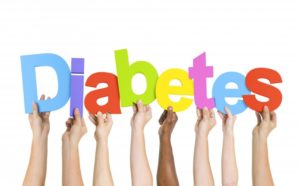
Your life is hard enough with type 2 diabetes, but recently things have been worse. You’ve been waking up with a sore, dry throat and headaches. Your partner is complaining that your snoring has only been getting louder lately and keeping them up, so they’ve been cranky as well. To top it all off, you always seem to be tired no matter how much sleep you get. These all sound like symptoms of sleep apnea. As it turns out, there is a significant link between type 2 diabetes and sleep apnea in State College. But what exactly is it? How does it relate to your diabetes? Keep reading to find out.
What Is Sleep Apnea?
Sleep apnea is a sleep disorder that’s characterized by pauses in breathing during the night. These episodes, which are called apneas, can wake you up temporarily. Even if you don’t remember these episodes, they can disrupt your quality of sleep and prevent you from achieving the deep rest you need.
The most common type of sleep apnea is called obstructive sleep apnea, or OSA. This is caused by tissues in the back of the mouth and throat collapsing during sleep and blocking the airway. The body essentially goes into panic mode and start gasping for air to wake you up. Common symptoms of OSA include loud snoring, daytime fatigue, and morning headaches.
The Link Between Sleep Apnea and Type 2 Diabetes
The main connection between the two disorders seems to be weight. People with type 2 diabetes tend to be overweight and have large amounts of visceral fat, or the fat deep inside the body that surrounds the organs. This excess weight causes the tissues in your throat to collapse into your airway and block it, causing episodes of apnea.
Sleep apnea can also increase blood sugar levels. When you experience chronic stress due to not getting enough sleep, your body releases hormones that do things like release stored glucose in the liver, raising your blood sugar level. Over time, this high blood sugar can lead to insulin resistance.
How to Treat Sleep Apnea
If you suspect you have sleep apnea, you should see your dentist right away for sleep apnea treatment in State College. They can craft an oral appliance for you that can reposition your jaw so that your tissues don’t block your airway during the night. They may also prescribe a CPAP machine to essentially do your breathing for you and keep your airway open.
Sometimes, lifestyle factors may also help reduce symptoms of sleep apnea. Losing weight, especially around the neck, can decrease the likelihood that your airway will be blocked while you sleep. Refrain from smoking or consuming alcohol for a few hours before bed, as that can relax the tissues and make them more likely to block the airway.
Sleep apnea and type 2 diabetes are clearly linked. By seeking treatment for one, you can reduce symptoms of the other.
About the Author
Dr. Donald Marks earned his dental degree from the University of Pittsburgh. He realized that dentistry perfectly combined his loves of art, helping others, science, and solving problems. His practice, State College Dental Sleep Medicine, offers oral appliance therapy and combined therapy to treat sleep apnea in State College, PA. To schedule an appointment, contact his office by clicking here.
